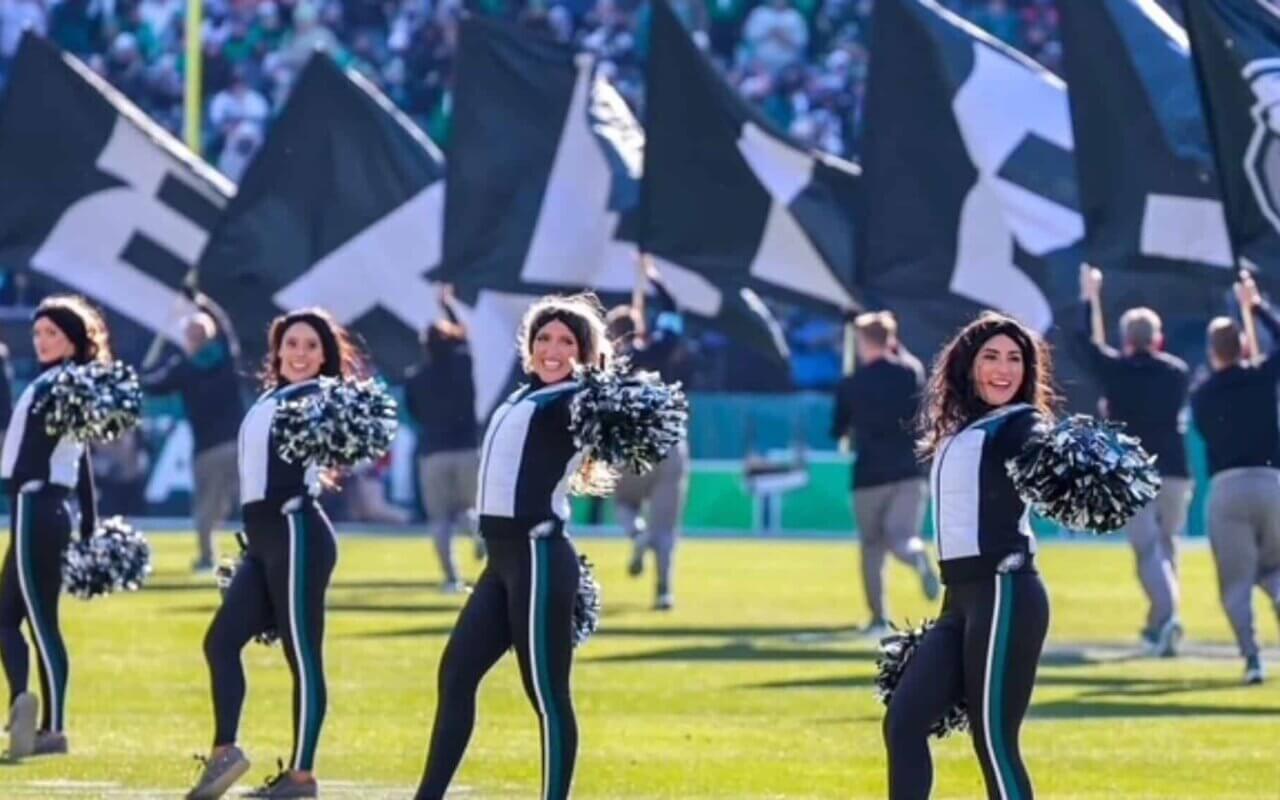View the original article on Jewish News Syndicate
Dead Sea in Israel. Credit: samirsmier/Pixabay.
Ceasefires, airlines resuming flights to Israel, the start of the spring holidays, and Israelis in the north and south returning to their homes work to assure those involved in group travel that students can visit.
For decades, the eighth-grade trip to Israel has been a central component of the Jewish day-school experience. The capstone tour traditionally brings students to Israel for a week or more to interact meaningfully with the people and the land, which they have been learning about throughout their elementary and middle school years. The trip also serves to bond classmates and sets the tone for what educators and parents hope will be a lifetime of positive Jewish and Israel experiences. It also serves as a recruitment tool for students to stay in day school for the high school years: ninth through 12th grades.
Planning and executing the eighth-grade Israel trip has usually been straightforward with school administrators working with tour providers and tour educators to customize the itinerary, book rooms, arrange for a guide, driver and security guard, and work out costs. In recent years, the COVID-19 pandemic and skirmishes in Israel have proved challenging for Jewish schools wishing to provide a visit that is not only safe but provides access to museums and sightseeing spots on their itineraries.
This year, as the war in Israel starts its 17th month, Jewish day schools across the country are carefully weighing a number of factors as they assess whether or not such trips can go ahead as planned. Options include proceeding with tweaked itineraries, postponing until later in the year or next year, and considering non-Israel trip options, often to destinations in the United States.
According to Paul Bernstein, CEO of Prizmah: Center for Jewish Day Schools, consensus exists among schools as to the importance of the visits. “Jewish day schools in the Prizmah network across North America are deeply committed to their Israel trips. The opportunity to offer such a meaningful experience in middle school is an integral and important part of the educational journey of their students,” he tells JNS.
That said, differences in age groups are a factor, with the younger set ranging from 12 to 14, though Bernstein says that “leaders are again determined to go ahead with the trips if they possibly can.”
Still, administrators try hard to make such trips happen, even during difficult times.
Bernstein notes that last year, “schools did everything they could to maintain the trips. Many went ahead, and even in the face of acute situations like the Iranian missile attack last spring, they continued with the programs—carefully advised by the Israeli security professionals—to keep their faculty and students safe.”

Some schools tried even harder than in the past to create opportunities for community members to get to Israel.
According to Bernstein, “we saw schools that previously did not have organized trips launch student and parent missions, increasing the number of Jewish day schools visiting Israel at such a crucial time, standing with the state, bearing witness in the crisis and volunteering across the country to support agriculture and other important causes.”
‘A modified itinerary’
Decisions about moving forward with Israel trips this spring, summer and fall are even more complicated—and not just because of safety precautions. The sheer challenge of finding flights to and from the Jewish state since airlines other than El Al have limited or halted their routes is a pressing concern, as is keeping costs down at a time when tourism in Israel is more expensive than ever.
To help schools through the process, Prizmah has convened meet-ups for decision-makers at various levels as they undergo the process of determining if and how to proceed with their trips. Bernstein also tells JNS that “parents are being brought into the process in an active way.”
While some schools are planning to go ahead as planned, others spoke of alternative trips to places like New York and New England, as well as possible social-justice work in Oregon with the Tivnu organization that explores the Pacific Northwest. One even mentioned Panama.
Sara Weiss, dean of middle-school students at the Seattle Hebrew Academy, recalls being a participant in the school’s very first eighth-grade trip to Israel back in 1990. While she notes that a few trips have been postponed in past years, she says the school has worked hard to make them happen. “We have heard from so many of our alumni how impactful the eighth-grade trip was for them,” she tells JNS.
Weiss is hopeful that the trip will happen, “though likely with a modified itinerary.” She continues to monitor how colleagues at other Jewish day schools across the country are grappling with the issues, noting that plane tickets for the students have been purchased.

Chris Aguero, head of school of Ezra Academy in Woodbridge, Conn., says it seems “eerily familiar to where we were during the pandemic.”
He hoped that his nine eighth-graders would get to go to Israel this March, though at the same time acknowledged that he wishes the trip would take place even earlier, in the sixth or seventh grade. “As lovely as it is to be a culminating trip,” he says, “it would be more strategic to go then so they can come back inspired and with a greater appreciation of the Hebrew language.”
Aguero notes that the impact is clear: “You hear it in their graduation speeches, and you see it in their faces.”
In the end, parents were not all fully on board to send their kids, so a decision was made to go to Costa Rica in May, staying at a venue with kosher food and a place to keep Shabbat.
‘A meaningful alternative’
Rabbi Dov Lerea, head of Judaic studies at The Shefa School in Manhattan, is optimistic that his 43 eighth-graders will get to go to Israel. For Lerea and Shefa, the trip is part of a comprehensive plan throughout the grades to have students “engage with love and passion for the land and the State of Israel.”
He tells JNS that “the building of Jewish identity should include a sense of connectivity to the land of Israel and the dedication with which people returned to Israel to build a society.

When Lerea was tasked with creating a trip at the K-8 school for children with language-based learning disabilities, he had four principles in mind: love of the land, chesed (“lovingkindness”) spirituality and history. But he knows that “it’s gotta be fun, too.”
He is proud of the parent body that he describes as “deeply Zionistic” and “very supportive of the trip,” noting that even last year, “everybody was in. I didn’t get a single email asking how was I going to go to Israel?”
Last year, Lerea brought his students to the south instead of going to the Golan Heights, where at the time rockets were being fired by Hezbollah from Lebanon toward Israel’s north. This year, they also plan to spend time hiking in the south. Lerea notes that he will only cancel the May trip if their vendor explicitly says, “Don’t come.”
He is so determined to go that “if 35 families say, “we can’t do it,” I will say, “I understand and take five or so to visit hostage families, etc., and represent Shefa with pride.”
Others stick to the central part of the country—namely, Tel Aviv, Jaffa, Jerusalem, the Dead Sea.
Tamar Cytryn, director of Judaic Studies at the Chicago Jewish Day School, reports that her school’s 21 eighth-graders are on track to go to in mid-May. “We’ve already put money into the airline tickets,” she says.
However, “if we have to cancel, we will likely pivot” and find a meaningful alternative, she tells JNS: “Israel is supposed to be the capstone; if it doesn’t happen, we will create a final project that ties together all of their learning on Israel.”
During a similarly uncertain time, the school created “Israel in Illinois,” where they spent a week participating in parallel activities—from a hike to a water park—that approximated their scheduled Israel visit.
‘A range of solutions’
Rabbi Marshall Lesack, head of school at Jack M. Barrack Hebrew Academy in Bryn Mawr, Pa., said he is committed to students having an immersive experience in Israel. He points to the school’s traditional two-week spring trip in the eighth grade and its three-month program in the 11th grade as part of the Alexander Muss High School in Israel.

Following the Hamas-led terrorist attacks in southern Israel on Oct. 7, 2023, Lesack flew days later to the Jewish state to help bring the school’s Muss students back to the United States, as did many other groups of Americans. The 11th grade did not go to Muss in the fall of 2024 as the war in Israel continued.
He points to issues such as security; financial realities for each family; financial realities for the school if they commit to the trip and then have to cancel; parental concerns; and a possibly altered experience if the trip deviates substantially from its standard curriculum.
Nevertheless, he says, the school remains “deeply committed” to travel programs, saying the trips are meant “to unify and bind the grade.”
Given the school’s relatively early trip timed for March, coupled with the ongoing uncertainty in the Middle East, Lesack and his leadership team informed parents and 70 eighth-grade students just before winter break that the trip would not take place. Instead, the class will travel to Boston in early May for “a mix of bonding, fun and Jewish experiences,” as they did the year before when the middle-school trip was similarly canceled.

Lesack reiterates his school’s commitment to Israel and the Israel experience: “On one level, the trip is a capstone experience for the middle-school students. It is also a stepping-stone for their 11th-grade semester. We are looking for even more immersive experiences in the 11th grade.”
That said, a Zoom meeting on March 2 with parents went over plans for this fall’s return to Muss.
Bernstein tells JNS that “it is likely that there will be a number of alternative trips, which schools are determined should be educationally and Jewishly impactful, such as in Europe. We expect to see a range of solutions taking account of what is practical, the preferences of each school community and practical considerations such as supporting families with the cost of whatever the school plans.”
He says Prizmah’s Reshet (meaning “network” in Hebrew) communities serve as “a space for colleagues to seek information and support from one another. What we know is that to the extent that Israel trips are disrupted this year by insurmountable challenges, day schools continue to demonstrate their strong support for Israel and will resume visits as early as they possibly can.”

Betsalel Steinhart, director of education for Ramah Israel Institute, whose organization organizes trips for many Jewish day schools, spent last November visiting academic institutions in the United States. After returning to Israel, he confirmed that most were “in a holding pattern,” telling JNS: “My sense is that schools want to come, but it is hard to know how many will.”
He thinks that such positive signs as the ceasefires, airlines starting to resume flights to Israel, the start of the spring holidays, and Israelis in the north and south returning to their homes will help assure people that they can come to Israel, though he tells JNS that he understands why many remain “on the fence.”
As dates for the planned trips approach, Steinhart reports that “schools are starting to come back—many with hesitations and all with the desire to add volunteering to their already packed programs.”
He acknowledges that the decisions are complex and singular to each establishment, noting that “these programs are always built around trust, and they trust us to make the right decisions for them.”










